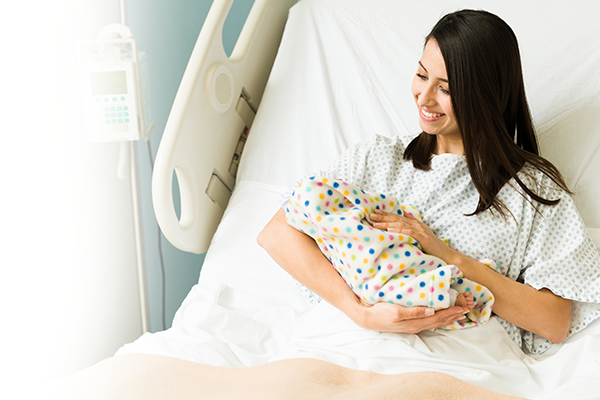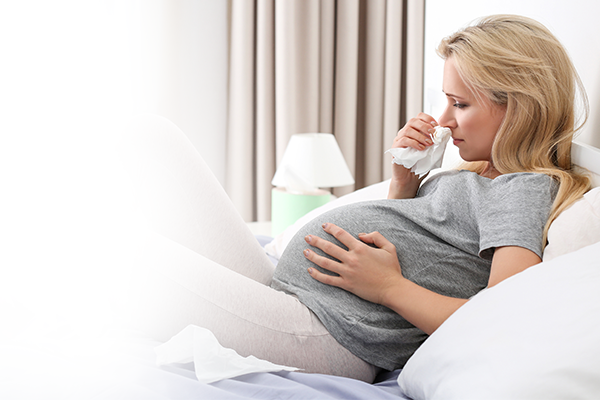The presence of ketone bodies in the urine of pregnant women may be due to dietary errors. Trace amounts also appear due to physical exertion. Significant urinary ketones in pregnant women can also be a symptom of diabetes. What causes the appearance of ketone bodies? What are the effects of this condition and how is the treatment?
Ketone bodies, called ketones (acetone, acetoacetic acid, betahydroxybutyric acid), are chemical compounds that are by-products of fat digestion processes. They are formed in the liver, from where they penetrate the bloodstream in trace amounts. The process of their production is controlled by hormones, among others. insulin. When the intake of carbohydrates, the primary source of energy, is reduced, ketones provide a substitute energy fuel.
Causes of ketones in urine in pregnant women
The appearance of ketone bodies in the urine indicates a carbohydrate deficiency and a situation in which the body takes energy from fat. For pregnant women, this condition can occur due to excessive vomiting (in the first trimester) or physical exertion. Increased ketones in a pregnant woman’s urine may also indicate the development of diabetes. Another common cause of the presence of ketone bodies in the urine is dietary errors, including. Following a high-fat or high-protein diet, limiting carbohydrate intake. Ketones in urine are also detected in women who struggle with thyroid diseases or are permanently taking certain groups of drugs.
Acceptable standards for ketone levels
In a healthy person, ketones are present only in the blood and in trace amounts. The acceptable norm in serum should not exceed 20 mg/dl. In the case of increased production of compounds, due to various factors, ketones are also detected in the urine, indicating abnormalities. This condition is referred to as ketonuria. The level of ketone bodies in urine exceeding 20 mg/dl requires consultation with a doctor.
Read also: CRP test in pregnancy – norms, indications, course.
How do ketones in urine manifest themselves?
The presence of ketones in the urine during pregnancy may be accompanied by the following complaints:
- Excessive dry mouth;
- Constant feeling of thirst (despite regular hydration);
- frequent urination;
- vomiting;
- abdominal pains;
- diarrhea;
- fatigue.
How to get rid of ketones in urine?
A prerequisite for successfully getting rid of ketones from urine is to determine the cause of this condition. It is also very important to perform comprehensive laboratory tests to determine the functionality of the pancreas, thyroid and liver. Depending on the etiology of ketonuria, treatment consists of changing dietary habits, replacing medications taken on a regular basis or pharmacological regulation of glycemia. Underestimating the presence of ketones in urine during pregnancy poses a direct threat to the baby and can result, for example, in brain damage to the developing fetus.
Diabetes in pregnant women and possible complications
From a medical point of view, the development of diabetes in pregnancy occurs due to impaired carbohydrate tolerance. An early sign of the disease is the condition of ketonuria, or the presence of ketones in the urine. Therefore, diagnosed diabetes in pregnancy is considered an emergency and a type of complication. The disease usually develops in the second half of pregnancy. This is due to the metabolic changes that occur at that time, in which there is a significant increase in blood glucose. Other factors conducive to the development of diabetes in pregnancy include obesity, endocrine disruption, age over 35, a history of diabetes in a previous pregnancy, a family history of diabetes, having a baby over 4,000 grams, and miscarriages.
Gestational diab etes is very often a substrate for the development of type 2 diabetes. The disease threatens both mother and child. Excessive glucose disrupts the functioning of the placenta, which increases, among other things. risk of perinatal injury. Children of mothers with untreated diabetes are also at risk for respiratory disorders, development of postnatal hyperbilirubinemia, hypoglycemia, disorders in intellectual and psychosomatic development, congenital defects (heart defects, nervous system defects, biliary tract overgrowth, kidney disease, limb deformities, spinal defects).
Treatment of gestational diabetes
A woman diagnosed with diabetes in pregnancy should remain under close diabetes and obstetric supervision. In some cases, the possibility of natural childbirth is ruled out. The appointment of a cesarean section depends on the condition of the fetus, the viability of the placenta and the compensation of diabetes. If there is a high risk of perinatal complications, early termination of pregnancy is allowed. The main goal of gestational diabetes treatment is to normalize glucose and insulin levels to calm metabolic disturbances. Therapy involves three steps: Diet, physical activity and giving the patient pharmacological agents (insulin injections). The patient’s adherence to the above recommendations in most cases leads to the equalization of sugar levels.
Read also: Morphology in pregnancy-why is it an important test?
Rate this article:









